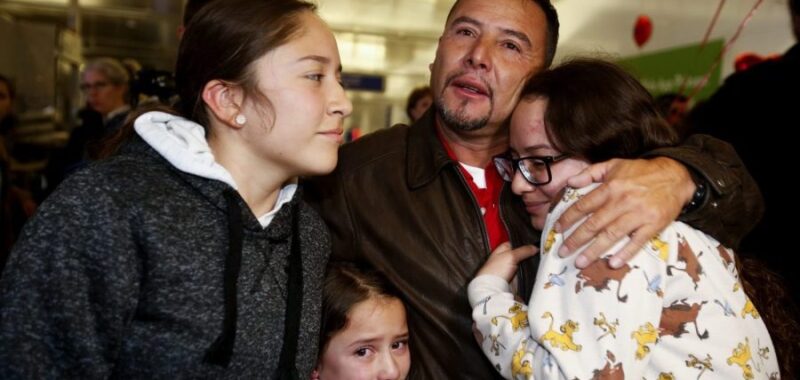
During the vice presidential debate, Sen. JD Vance was asked a straightforward question: “Will you deport the parents of U.S.-born children?” He dodged the question twice.
Vance’s silence speaks volumes. It’s assumed that American-born children are immune to immigration enforcement — but this assumption is dangerously false.
Today, there are nearly 5.9 million American citizen children with a parent facing deportation. Those effects spill over to American-born children.
Current laws require individuals, not the government, to prove citizenship. This could lead to racial profiling as officials target noncitizen parents and their American-born children based on how they look or what language they speak. This opens a back door to discrimination, as those who “appear” foreign-born, particularly people of color, would be targets for heightened scrutiny regardless of their legal status.
The U.S. already has a similar authority to deport quickly. Expedited removal is a process whereby low-level officers quickly deport noncitizens. It bypasses rights afforded to noncitizens already inside the country, such as the opportunity to present their case and access to counsel. Expedited removal is limited to noncitizens found within 100 miles of an international border who have been in the country for under 14 days.
Any mass deportation campaign of the kind Donald Trump and Vance envision would focus on expediency, trampling on the few rights noncitizens have. It would strip the ability to have a judge decide on their removal. But it would also ignore the fundamental rights of American-born children. American citizens are entitled to all rights and protections in the Constitution. Yet, when their parents face deportation, those rights are jeopardized.
The 14th Amendment grants citizenship to all persons born or naturalized in the U.S. Their children have the right to live in their country of birth. But when we deport their parents, we place American-born children in impossible situations: Either stay in the U.S. without parents or leave under their parent’s deportation order.
In Vance’s silence, he chose to ignore the 16.7 million mixed-status families currently living in the U.S. A mixed-status family is one whose members include people with different citizenship or immigration statuses. American-born minors, like their noncitizen parents, remain invisible. They have no way to transfer their citizenship to their parents. American citizen spouses can petition for their noncitizen spouse at any age, so long as their marriage is legal in the state where they marry. But children must wait until they are 21 years old to do so, leaving millions of families exposed to immigration enforcement.
Let’s be clear: Deporting the parents of U.S. citizens is a form of family separation. I witnessed this firsthand as a lawyer with the Department of Homeland Security. I experienced how the immigration system excludes American children like Maria. Immigration officials placed her mother, Elena, in immigration court. At 13, Maria sat in the back of the courtroom, her hair dyed purple. Maria wasn’t named in the deportation proceedings, yet she mirrored her mother’s psychological distress caused by the threat of deportation. Maria had written a letter to the judge about the anxiety she felt at the thought of losing her mother. She prayed the judge would consider it.
The Republican Party has ignored American children born to noncitizens. There is only one way to read Vance’s silence, and it’s a total disregard for Maria and the millions of children like her in America.
The Obama administration once suggested Deferred Action for Parents of Americans and Lawful Permanent Residents. It would have allowed undocumented parents of U.S. citizens to live free from deportation. It would have also allowed for work permits to help 25 percent of children in mixed-status families who live below the poverty line. The program was never implemented because politics took priority over protecting children’s rights.
The value of an American citizen’s rights should not depend upon where their parents were born. These children deserve the safety that comes with their U.S. citizenship. Yet many grow up watching their parents live under the constant threat of deportation. Our laws must reflect that all American citizens, regardless of their parents’ immigration status, are entitled to the full scope of rights promised by the Constitution.
Veronica Cardenas is a former prosecutor with the Department of Homeland Security. She is the founder of Humanigration, a digital platform serving immigrants and their legal advocates.

